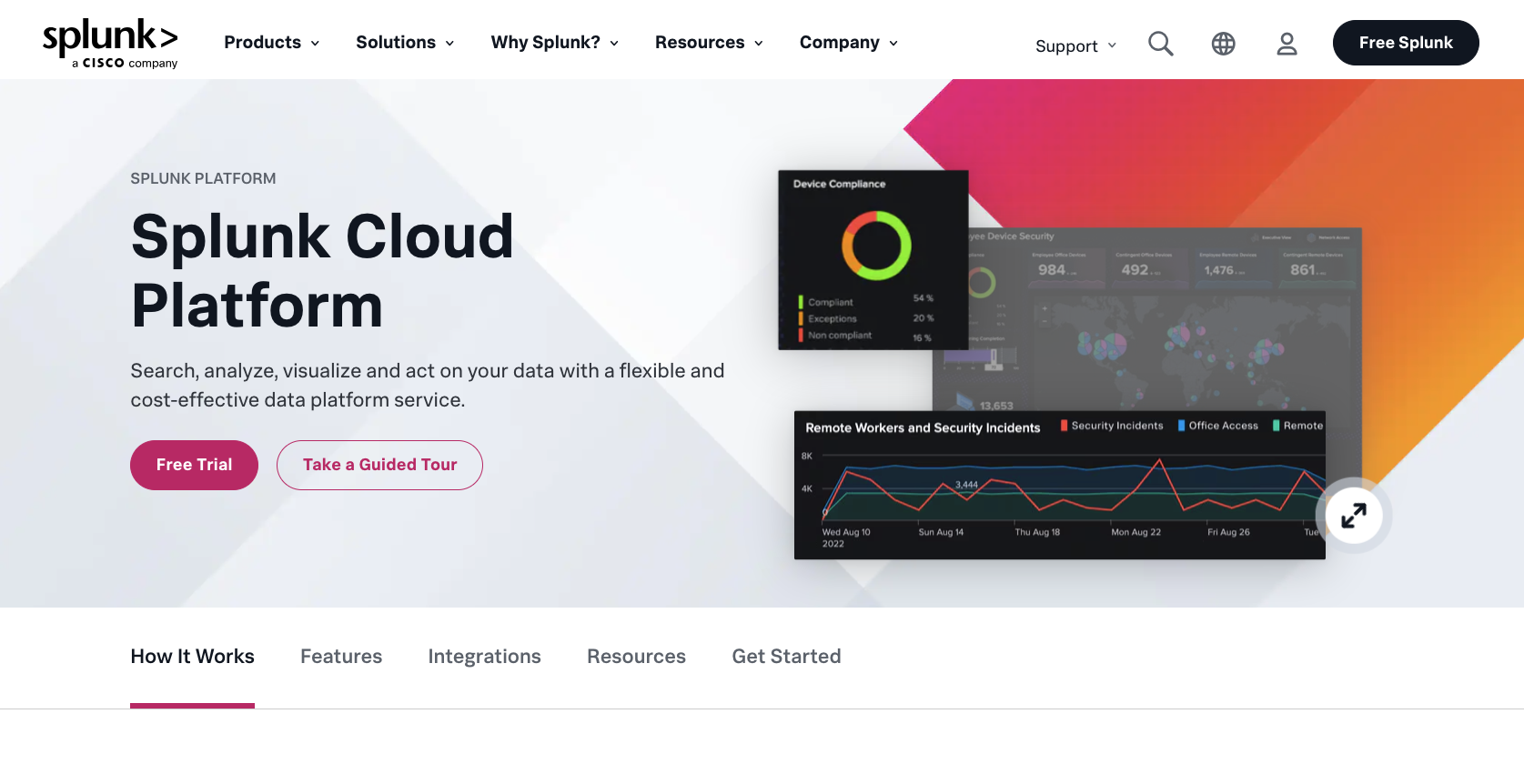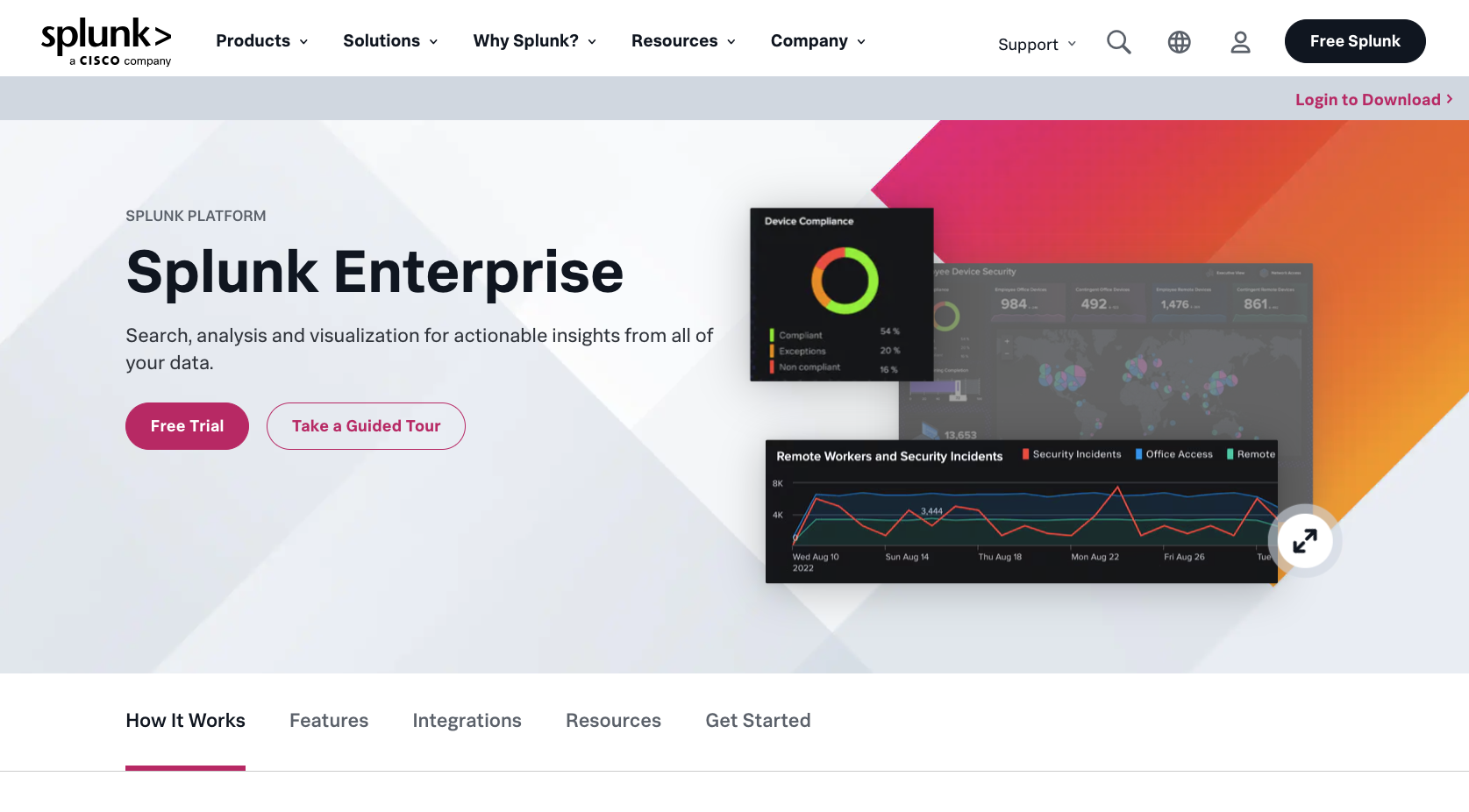If you’re navigating the waters of enterprise software and trying to decide between Splunk Cloud and Splunk Enterprise, you’re not alone. These two powerful platforms offer robust solutions for log analysis and data management, but they serve very different business needs. This guide will walk you through the features, benefits, and considerations for each, helping you choose the best option for your organization.
Whether you’re a business in need of a highly scalable solution or one that requires full control over infrastructure, this breakdown will help clarify which Splunk product aligns better with your goals.
What is Splunk Cloud?
Splunk Cloud is a cloud-based log analysis solution designed to simplify and scale data analytics for businesses of all sizes. It takes the burden of infrastructure management off your shoulders while providing powerful tools to analyze machine data in real-time.
Key features
- Scalable infrastructure: Automatically adjusts to handle growing data volumes without additional hardware or complex setup.
- Minimal IT management: Setup is straightforward, with updates and maintenance fully managed by Splunk.
- Remote accessibility: Access your analytics from anywhere, making it a great choice for distributed teams.
Best use cases
Splunk Cloud is ideal for businesses with:
- Limited IT resources
- A need for scalability due to variable data loads
- Teams operating in different locations who require easy access to data insights
If you’re looking for a modern, flexible solution with minimal setup overhead, Splunk Cloud has you covered.
What is Splunk Enterprise?
Splunk Enterprise is designed for businesses that require on-premise data management with full control over their infrastructure. It offers extensive customization and security options, making it well-suited for industries with strict compliance requirements.
Key features
- On-Premise Deployment: Full ownership of the infrastructure allows businesses to have complete control over data processing and storage.
- Customization: Tailor configurations, dashboards, and tools to meet specific business needs.
- Advanced Security: Meet stringent compliance demands with features that ensure your data stays in-house.
Ideal scenarios
Splunk Enterprise is the go-to choice for organizations with:
- Strict security and regulatory requirements
- A preference for hosting sensitive data on their own servers
- A robust IT team to manage the system
For enterprises that need control and customization, Splunk Enterprise is a powerful solution.
Key differences between Splunk Cloud and Splunk Enterprise
Deployment models
- Splunk Cloud is fully cloud-based, requiring no physical infrastructure.
- Splunk Enterprise operates through on-premise deployment, putting all data within your own servers.
Scalability and performance
- Splunk Cloud automatically scales to meet changing data demands, making it ideal for businesses experiencing rapid growth.
- Splunk Enterprise requires manual scaling and a dedicated IT team to handle expanded capacities.
Security and compliance
- Splunk Cloud offers industry-standard security but relies on third-party server management, which may not meet all compliance needs.
- Splunk Enterprise gives you full control over security configurations, making it suitable for industries like finance or healthcare.
IT maintenance
- With Splunk Cloud, all updates and maintenance tasks are handled by Splunk, saving your IT team time.
- Splunk Enterprise requires ongoing management and maintenance by your internal IT team.
Pros and cons of Splunk Cloud
Pros
- No infrastructure setup or maintenance required.
- Fast deployment, ideal for quickly scaling businesses.
- Simplifies remote team access with cloud-based insights.
Cons
- Data storage and sovereignty concerns for regulated industries.
- Potential latency depending on internet speed and location.
For organizations prioritizing ease of use and scalability, the benefits of Splunk Cloud often outweigh the challenges.
Pros and cons of Splunk Enterprise
Pros
- Full control over infrastructure and data storage.
- Highly customizable for unique business needs.
- Meets security and compliance requirements for sensitive industries.
Cons
- Requires significant IT resources to manage and maintain.
- Higher upfront costs for hardware and deployment.
Splunk Enterprise is best for businesses that demand control and advanced configuration options.
Pricing models of Splunk Cloud and Splunk Enterprise
Splunk Cloud Pricing
Splunk Cloud follows a subscription-based payment model, charging based on data volumes and feature tiers. This allows you to scale costs according to your usage.
Splunk Enterprise Pricing
Splunk Enterprise typically requires a licensing fee, which can include per-server or per-user costs. While the upfront cost is higher, it enables greater flexibility over long-term expenses.
For small organizations, Splunk Cloud often offers better cost efficiency, whereas large enterprises can realize long-term value with Splunk Enterprise.
G2 ratings and user insights
Wondering how these two platforms fare in real-world scenarios? Here’s what the ratings on G2 reveal:
- Splunk Cloud Users rate Splunk Cloud highly for its scalability, simplicity, and quick deployment times.
- Splunk Enterprise Users appreciate its power in handling large-scale, enterprise-specific analytics needs, though IT complexity can be a drawback.
Both solutions boast strong user satisfaction, highlighting their effectiveness within different use cases.
How to choose between Splunk Cloud and Splunk Enterprise
The choice between these two platforms largely depends on your business’s scale, IT resources, and data privacy requirements. Consider the following factors:
- Scalability: Need a flexible solution that scales automatically? Splunk Cloud is your answer.
- Security and Compliance: If you operate in a regulated industry, Splunk Enterprise ensures compliance.
- IT Resources: Opt for Splunk Cloud if you lack an in-house IT team; go with Splunk Enterprise if you have the expertise and personnel to manage the system.
By aligning your choice with your operational needs and strategy, you’ll ensure the best fit.
Jotform Enterprise: A powerful alternative
Before locking in your decision, consider an alternative that combines versatility, scalability, and ease of use. Jotform Enterprise offers an intuitive platform built to empower teams across various industries.
Key Features
- Multi-User Collaboration: Create shared workspaces with role-based access for seamless teamwork.
- White Labeling: Fully customize your forms and dashboards to reflect your branding.
- Advanced Security: 256-bit SSL encryption and PCI certification ensure top-notch data protection.
- SSO Integration: Simplify user access without compromising security using single sign-on.
- Dedicated Support: Enjoy personalized assistance to set up and manage the platform.
Unlike many traditional solutions, Jotform Enterprise is easy to adopt and flexible enough to grow with your business needs.
Explore Jotform Enterprise and see how it can streamline your enterprise resource planning and data workflows.
Photo by Ivan Mudruk






























Send Comment: